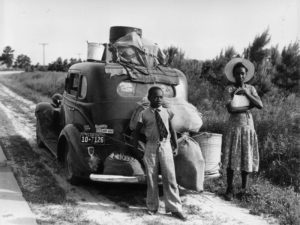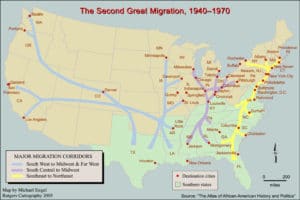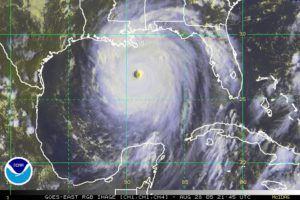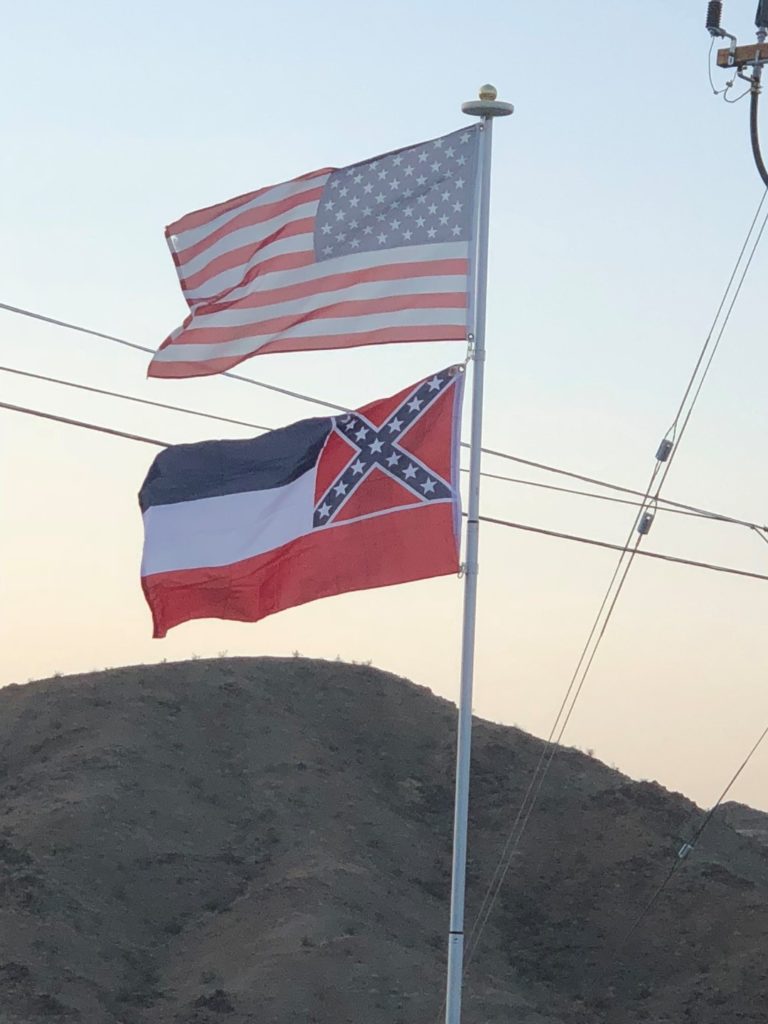
20th Century to Present:
Starting about 1913, tens of thousands of black Americans left Mississippi for the North in the Great Migration to industrial cities such as St. Louis, Chicago, Detroit, Cleveland, Philadelphia and New York. They sought jobs, better education for their children, the right to vote, relative freedom from discrimination, and better living. Most migrants from Mississippi took trains directly north to Chicago and often settled near former neighbors.

In the early 20th century, some industries were established in Mississippi, but jobs were generally restricted to whites, including child workers. The lack of jobs also drove some southern whites north to cities such as Chicago and Detroit, seeking employment, where they also competed with European immigrants. The state depended on agriculture, but mechanization put many farm laborers out of work.
The Second Great Migration from the South started in the 1940s, lasting until 1970. Almost half a million people left Mississippi in the second migration, three-quarters of them black. Nationwide during the first half of the 20th century, African Americans became rapidly urbanized and many worked in industrial jobs. The Second Great Migration included destinations in the West, especially California, where the buildup of the defense industry offered higher paying jobs to both African Americans and whites.

In 1966, the state was the last to repeal officially statewide prohibition of alcohol.
In 1987, 20 years after the U.S. Supreme Court had ruled in 1967’s Loving v. Virginia that a similar Virginian law was unconstitutional, Mississippi repealed its ban on interracial marriage (also known as miscegenation), which had been enacted in 1890. It also repealed the segregationist-era poll tax in 1989. In 1995, the state symbolically ratified the Thirteenth Amendment, which had abolished slavery in 1865.
On August 29, 2005, Hurricane Katrina, though a Category 3 storm upon final landfall, caused even greater destruction across the entire 90 miles of the Mississippi Gulf Coast from Louisiana to Alabama.

Economy:
The Bureau of Economic Analysis estimates that Mississippi’s total state product in 2010 was $98 billion. Per capita personal income in 2006 was $26,908, the lowest per capita personal income of any state, but the state also has the nation’s lowest living costs
A largely rural state with agricultural areas dominated by industrial farms, Mississippi is ranked low or last among the states in such measures as health, educational attainment, and median household income. The state’s catfish aquaculture farms produce the majority of farm-raised catfish consumed in the United States.

Mississippi’s rank as one of the poorest states is related to its dependence on cotton agriculture before and after the Civil War, late development of its frontier bottomlands in the Mississippi Delta, repeated natural disasters of flooding in the late 19th and early 20th century that required massive capital investment in levees, and ditching and draining the bottomlands, and slow development of railroads to link bottomland towns and river cities. In addition, when Democrats regained control of the state legislature, they passed the 1890 constitution that discouraged corporate industrial development in favor of rural agriculture, a legacy that would slow the state’s progress for years.
